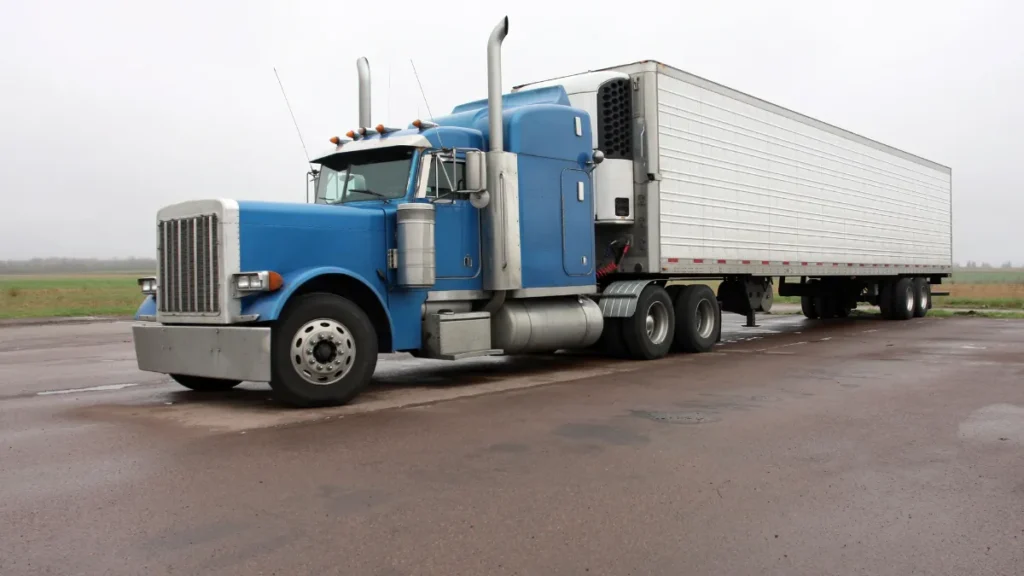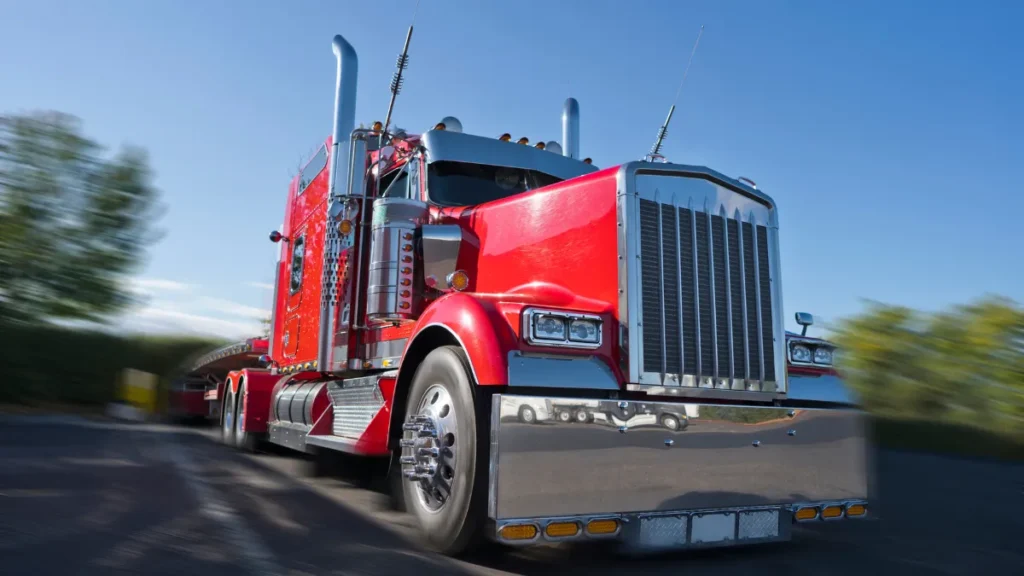Truck accidents are among the most severe and devastating collisions on the road. Determining who is liable in a truck accident can be a complex process involving multiple parties, legal intricacies, and extensive investigations. At Tennessee Accident Law, we specialize in helping victims of truck accidents navigate these challenges and secure the compensation they deserve. If you or a loved one has been injured in a truck accident in Franklin, Tennessee, read on to understand your rights and responsibilities. Call us for a free case evaluation at 615-212-9866.

Liability in a Franklin Truck Accident
When a truck accident occurs, one of the first steps is identifying who is liable in a truck accident. Liability means legal responsibility for the damages caused, including medical bills, lost wages, property damage, and pain and suffering. In truck accidents, liability often involves more than just the truck driver. Several parties could be at fault, and it’s crucial to evaluate all potential sources of liability.
Parties That May Be Liable in a Truck Accident
1. The Truck Driver
Truck drivers are often the primary party considered in determining who is liable in a truck accident. Their actions, or lack thereof, can contribute significantly to accidents. Common causes of truck driver liability include:
- Distracted driving: Using a phone, eating, or other distractions.
- Driving under the influence: Alcohol or drug impairment.
- Fatigue: Violating hours-of-service regulations designed to prevent overworking.
- Speeding or reckless driving: Ignoring traffic laws or road conditions.
2. The Trucking Company
Trucking companies may bear liability if they fail to enforce safety standards or engage in negligent practices. Examples include:
- Negligent hiring practices: Employing unqualified or inexperienced drivers.
- Improper training: Failing to provide adequate instruction for handling large vehicles.
- Forcing drivers to violate hours-of-service regulations: Prioritizing deadlines over safety.
3. The Cargo Loader
Improperly loaded cargo can lead to devastating accidents, especially if the load shifts during transit. Liability can fall on the company or individuals responsible for loading and securing the freight.
4. The Truck Manufacturer
Mechanical failures such as brake malfunctions, tire blowouts, or steering system issues can cause catastrophic accidents. In these cases, the truck manufacturer or parts supplier may be liable for producing defective equipment.
5. Maintenance Providers
Routine maintenance is crucial for large commercial vehicles. If a maintenance company fails to inspect or repair critical components, they may be found liable for accidents caused by those failures.

Proving Liability in a Truck Accident
Establishing who is liable in a truck accident requires thorough evidence and legal expertise. Here are some key steps involved in proving liability:
1. Investigating the Accident
An investigation gathers critical evidence, including:
- Police reports: Official documentation of the accident.
- Eyewitness testimony: Statements from those who saw the crash.
- Surveillance footage: Video evidence from traffic cameras or nearby businesses.
- Black box data: Information from the truck’s electronic logging device (ELD).
2. Examining Driver Records
Driver logs, training records, and employment history can provide insight into whether the truck driver or company violated safety regulations.
3. Reviewing Maintenance Records
Maintenance logs can reveal whether the truck was properly inspected and repaired. Neglect in this area may indicate liability.
4. Consulting Experts
Accident reconstruction experts, mechanical engineers, and other professionals can help clarify how and why the accident occurred.
Tennessee Trucking Laws and Regulations
In Tennessee, specific laws regulate the trucking industry to enhance road safety. These laws are essential in determining who is liable in a truck accident:
- Hours-of-Service Rules: Limit the number of hours a driver can operate without rest.
- Weight Restrictions: Ensure trucks do not exceed safe weight limits.
- Maintenance Standards: Require regular inspections and repairs.
Violations of these regulations can significantly impact liability claims.
The Role of Insurance in Determining Liability
Insurance coverage plays a critical role in determining who is liable in a truck accident. Trucking companies and drivers are typically required to carry higher levels of insurance compared to passenger vehicles due to the potential for catastrophic damages in a collision. Understanding the complexities of insurance policies can significantly impact the outcome of a claim.
Types of Insurance Policies Involved
Truck accidents often involve multiple insurance policies, including:
- Commercial Vehicle Insurance: Covers damages caused by the truck driver while operating the vehicle for business purposes.
- Cargo Insurance: Protects against losses related to the goods being transported, which may play a role if improperly loaded cargo contributed to the accident.
- General Liability Insurance: Covers incidents involving trucking companies, such as negligent hiring or failure to comply with safety regulations.
Challenges in Insurance Claims
Filing an insurance claim after a truck accident can be challenging because:
- Multiple Parties Are Involved: Different insurers may represent the driver, trucking company, cargo loader, and vehicle manufacturer.
- Policy Exclusions: Insurers may deny coverage by citing exclusions in the policy, such as driver fatigue or improper maintenance.
- Delays and Denials: Insurance companies may attempt to delay or undervalue claims to protect their financial interests.
How Tennessee Accident Law Helps with Insurance Issues
At Tennessee Accident Law, a Franklin truck accident lawyer will have extensive experience dealing with complex insurance claims in truck accident cases. We:
- Analyze all applicable insurance policies to maximize coverage.
- Negotiate aggressively with insurance adjusters to secure fair settlements.
- Take legal action if insurers act in bad faith or fail to honor legitimate claims.
If you’ve been injured in a truck accident, navigating the insurance process can be overwhelming. Our team is here to ensure that you receive the compensation you deserve. Contact a Tennessee truck accident lawyer at our firm today for a free case evaluation at 615-212-9866.
How Tennessee Accident Law Can Help
At Tennessee Accident Law, we understand that truck accidents can be life-altering. Determining who is liable in a truck accident involves navigating complex legal and procedural challenges. Here’s how we can assist:
- Comprehensive Case Evaluation: We examine all evidence to identify liable parties.
- Negotiation with Insurers: We deal with insurance companies to ensure you receive fair compensation.
- Litigation Expertise: If necessary, we are prepared to take your case to court and fight for your rights.
Compensation Available for Truck Accident Victims
Victims of truck accidents may be entitled to significant compensation. This can include:
- Medical Expenses: Past, current, and future medical costs.
- Lost Wages: Income lost due to the inability to work.
- Pain and Suffering: Compensation for emotional and physical distress.
- Property Damage: Costs of repairing or replacing damaged property.
- Punitive Damages: Additional compensation to punish egregious negligence.

Call Tennessee Accident Law for Help Today
Truck accidents are overwhelming, but you don’t have to face the aftermath alone. If you’re trying to determine who is liable in a truck accident, our experienced team at Tennessee Accident Law is here to help. With over 20 years of experience representing victims of catastrophic injuries, we are dedicated to securing justice and maximum compensation for our clients.
Complete the free case evaluation form or call us now at 615-212-9866. Don’t wait—your rights and future deserve immediate action.
Sources:
Federal Motor Carrier Safety Administration (FMCSA)
The FMCSA provides detailed regulations and safety standards for commercial motor vehicles, including trucking companies and drivers. It is a crucial resource for understanding hours-of-service rules, maintenance requirements, and safety guidelines.
Link: https://www.fmcsa.dot.gov
National Highway Traffic Safety Administration (NHTSA)
The NHTSA offers extensive data on traffic safety, crash reports, and vehicle safety standards. It provides statistical insights into truck-related accidents and their causes.
Link: https://www.nhtsa.gov
Bureau of Transportation Statistics (BTS)
The BTS compiles comprehensive transportation data, including statistics on freight movement, trucking logistics, and crash incidents involving commercial vehicles.
Link: https://www.bts.gov


